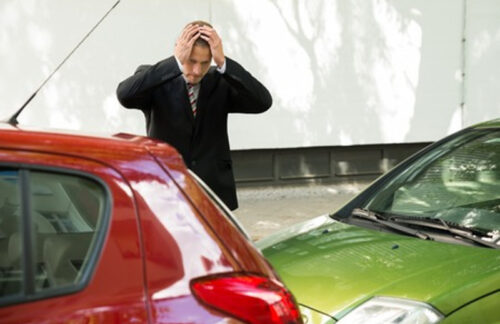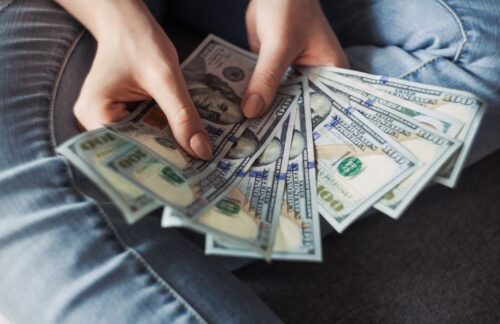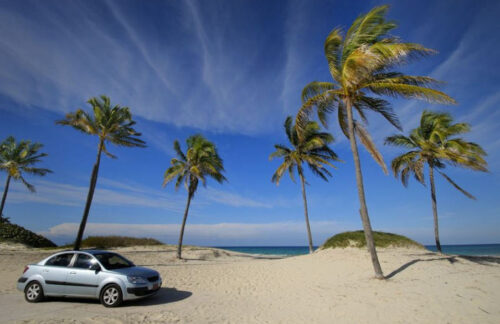When you want to reinstate your driver’s license and don’t own a vehicle, it will help to know the differences between non-owner SR22 and non-owner FR44 insurance. The filing you submit to the state depends on the reason for your license suspension.
Getting auto insurance when you don’t own a car may seem illogical. Still, if you have a driver’s license, you can – and likely do – drive someone else’s vehicle occasionally.
Anytime you drive a borrowed car, it’s wise to have secondary liability insurance coverage. Sometimes, going without this coverage results in paying higher insurance rates when purchasing a vehicle in the future. But when you need to reinstate your driver’s license, buying a high-risk auto insurance policy is mandatory, where non-owner insurance comes in.
If you don’t own a vehicle but need insurance to drive legally, non-owner insurance is what you’ll need. This post discusses when you should get non-owner SR22 & non-owner FR44 insurance, the differences between them and their cost, and information about non-owner insurance companies.

What Is Non-Owner Insurance?
All drivers who own vehicles must carry minimum auto liability insurance. Licensed drivers who don’t own a car but sometimes borrow a friend’s or relative’s vehicle can benefit from having non-owner insurance.
There are times, though, when the state requires a person who doesn’t own a vehicle to carry non-owner SR22 insurance or non-owner FR44. One of those times is to reinstate their driver’s license after a suspension. To get your license back, you’ll get a non-owner policy and attach an FR44 or SR22 insurance certificate to meet the state’s minimum liability insurance criteria. Filing this certificate with the state is a guarantee of financial responsibility. The state will restore your driving privileges once the Florida HSMV (DMV) receives and processes the necessary paperwork.
What does non-owner insurance coverage do? Suppose you cause an accident while driving a borrowed vehicle. In that case, this insurance pays claims brought by the other parties that exceed the vehicle owner’s insurance coverage. It does not pay for damage to the car you were driving or injury to passengers in the vehicle.
Non-owner insurance is always secondary to a vehicle owner’s auto liability coverage. It covers the difference if the primary insurance isn’t adequate to pay all accident claims. Non-owner insurance pays claims only after other available insurance options are exhausted.
So, non-owner SR22 and non-owner FR44 insurance in Florida allow drivers to regain their driving privileges after a license suspension. But that’s the only similarity.

How Are Non-Owner SR22 & Non-Owner FR44 Different?
There are three main differences between non-owner SR22 and non-owner FR44 insurance: the reasons for each, the minimum insurance coverage requirements, and the insurance rates.
Reasons To Get Non-Owner SR22 Insurance
Some of the reasons people need non-owner SR22 insurance in Florida include the following:
- License suspension is not alcohol or drug-related
- Getting too many points on your driving record (excessive routine traffic violations)
- Having multiple at-fault accidents or uninsured accidents
- Driving without insurance or a valid driver’s license
- To comply with a court order or legal judgment
When You Need Non-Owner FR44 Insurance
Reasons drivers must get non-owner FR44 insurance in Florida include the following:
- License suspension is the result of a DUI or DWI conviction
- Causing an accident while driving under the influence or intoxication
- Fleeing an accident scene
- Attempting to elude a police officer
Minimum Insurance Coverage Requirements
Florida non-owner SR22 insurance policies must meet the state’s minimum auto liability coverage requirements for all drivers. Florida SR22 insurance must have the following minimum coverage:
- $10,000 bodily injury per accident
- $20,000 bodily injury liability for all injuries in an accident
- $10,000 in property damage in one accident
A person convicted of driving under the influence in Florida must maintain higher insurance coverage. Minimum liability coverage for these drivers is far greater than for drivers with standard insurance since they are more likely to cause accidents resulting in injuries and property damage. Minimum coverage requirements for Florida FR44 insurance are:
- $100,000 bodily injury per individual per accident
- $300,000 bodily injury per accident
- $50,000 property damage per accident
The higher coverage requirements for non-owner FR44 insurance in Florida translate to higher insurance rates.

How Much Does Florida No-Car Auto Insurance Cost?
Depending on the circumstances of the license suspension and other underwriting factors, the cost of non-owner SR22 and FR44 insurance is highly variable.
Some insurance providers charge a minimal $15-$25 fee to file high-risk insurance certificates. However, UltraCar Insurance does not charge filing fees!
Other high-risk auto insurance costs: Besides paying for high-risk insurance, additional costs associated with license reinstatement include paying fines and reinstatement fees to the state. You may also have to take specific driver remediation classes requiring a fee. Many drivers carrying FR44 insurance must also install an ignition interlock device if they plan to drive a vehicle.
How Long Do Drivers Need To Keep It?
In Florida, most people must maintain a non-owner SR22 or non-owner FR44 insurance certificate for three years. The insurance company must inform Florida HSMV instantly if your policy lapses during this time. When this occurs, the state suspends your license, requiring you to undergo the entire reinstatement process again. In addition, the state may extend your SR22 or FR44 requirement.
Now that you understand the differences between non-owner SR22 & non-owner FR44 insurance, the next step is to find an SR-22 FR-44 insurance provider in Florida. There’s no better high-risk insurance provider than UltraCar Insurance to assist you with your license reinstatement filing. We’ve helped thousands of Florida drivers reinstate their licenses since 2012. Contact us today to discuss your auto insurance needs! Enjoy the savings we offer, and pay no filing fees!

